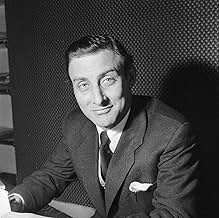Spike Milligan

Terence Alan "Spike" Milligan was a British-Irish comedian, writer, musician, poet, and actor, born on April 16, 1918, in Ahmednagar, India. He is best known for his work on the groundbreaking radio comedy series "The Goon Show," as well as his own anarchic brand of humor in a wide variety of media. Milligan grew up in India and later moved to England with his family. He served in the British Army during World War II, where he was involved in the Allied invasion of Italy. His wartime experiences would later inform much of his writing, which often dealt with themes of war and mental illness. After the war, Milligan began working as a comedian, first on the radio program "Crazy People," and later on "The Goon Show," which he co-created with Harry Secombe, Peter Sellers, and others. The show, which ran from 1951 to 1960, was known for its surreal humor, innovative sound effects, and irreverent attitude toward authority. It was hugely influential on later British comedy, and Milligan's writing for the show helped establish him as one of the most innovative and daring comedians of his era. In addition to his work on radio and television, Milligan was also a prolific writer of books, plays, and poetry. Some of his most popular works include "Puckoon," a comic novel about an Irish village divided by the border between Northern Ireland and the Republic of Ireland, and "Adolf Hitler: My Part in His Downfall," a memoir of his wartime experiences. Milligan's poetry, which often dealt with serious themes but was infused with his trademark wit and wordplay, was also widely acclaimed. Throughout his career, Milligan struggled with mental illness, particularly bipolar disorder, which led to several breakdowns and hospitalizations. He was a vocal advocate for mental health awareness and treatment, and his own experiences with the condition informed much of his writing. Milligan continued to work as a writer and performer until his death on February 27, 2002, at the age of 83. His influence on British comedy and culture remains significant, and his work continues to be celebrated for its irreverent humor, inventive wordplay, and subversive spirit.
| |
|
|
|
|
|
|
